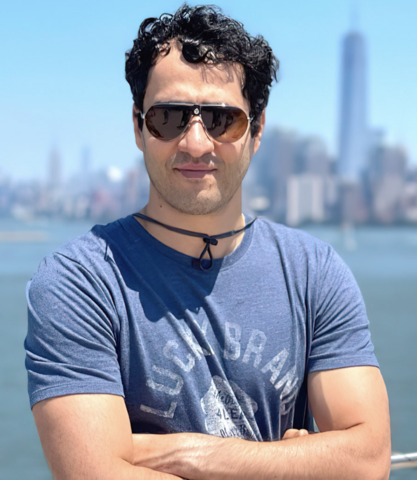Houmansadr Lab Wins Trifecta of Awards for Groundbreaking Work on the Great Firewall of China

Amir Houmansadr, associate professor in the Manning College of Information and Computer Sciences, has just received his third award for his investigation into Internet privacy and security for his co-authored USENIX Security 2023 paper, “How the Great Firewall of China Detects and Blocks Fully Encrypted Traffic.” The IETF/IRTF 2024 Applied Networking Research Prize rounds out Houmansadr’s trifecta, which also includes wins a First Place in CSAW 2023 Applied Research Competition and the Best Practical Paper Award from the FOCI community.
“This work wouldn’t be possible without joining forces with pioneering anti-censorship researchers and developers,” said Houmansadr, who partnered with academic researchers from the University of Colorado Boulder and University of Maryland, as well as independent researchers from the GFW Report and V2Ray.
This has not been the first time that Houmansadr fought against Internet censorship together with the Internet freedom community. Throughout the years, Houmansadr has been defending the internet users against the censorship attacks from the Great Firewall of China (GFW), the national censorship apparatus that is essentially a set of devices, services and rules that the government of the People’s Republic of China uses to censor the Internet.
The goal of the Great Firewall is to shield Chinese residents from certain information that China considers to be counter to its interests. The firewall blocks entire websites and filters content on sites that are not completely blocked. It also works to neutralize the circumvention protocols that internet users in China use to bypass censorship.
In this newest paper, Houmansadr and his colleagues studied one of the Great Firewall’s newest innovations.
Fully encrypted protocols are the cornerstones of a large set of censorship-circumvention tools that have been used by tens of millions of users all over the world. These protocols have been able to help users bypass censorship for more than a decade—until recently, when the Great Firewall suddenly gained the ability to block them all in real time, leading many in the anti-censorship community to ask how such detection was possible.
“The community of Internet freedom advocates was puzzled when the Great Firewall, out of nowhere, began to distinguish and block traffic of long-lasting and prominent VPN services, even though they were encrypting every single byte of their traffic,” says Houmansadr. “How could that be even possible?”
To understand how the Great Firewall can do what it does, Houmansadr and his colleagues conducted extensive measurements to infer various properties about the GFW’s traffic analysis algorithm and evaluated its comprehensiveness and false positives against real-world traffic. Their understanding of the GFW’s new censorship mechanism helped them develop several practical circumvention strategies, which they shared with the developers of popular anti-censorship tools. Their timely study and sharing of the anti-censorship techniques has helped tens of millions of users in both China and Iran regain access to the free Internet during politically sensitive periods of time.
Houmansadr says that the top accolades that this work has won of from the Internet freedom, security and networking communities is a testimony to the importance of an open internet.
“In an increasingly interconnected world, Internet freedom stands as a cornerstone of democratic values, fostering open dialogue, innovation and the free exchange of ideas,” he says. “One cannot overstate the significance of preserving an open and free Internet.”
This article was originally published by the UMass Amherst Office of News & Media Relations.